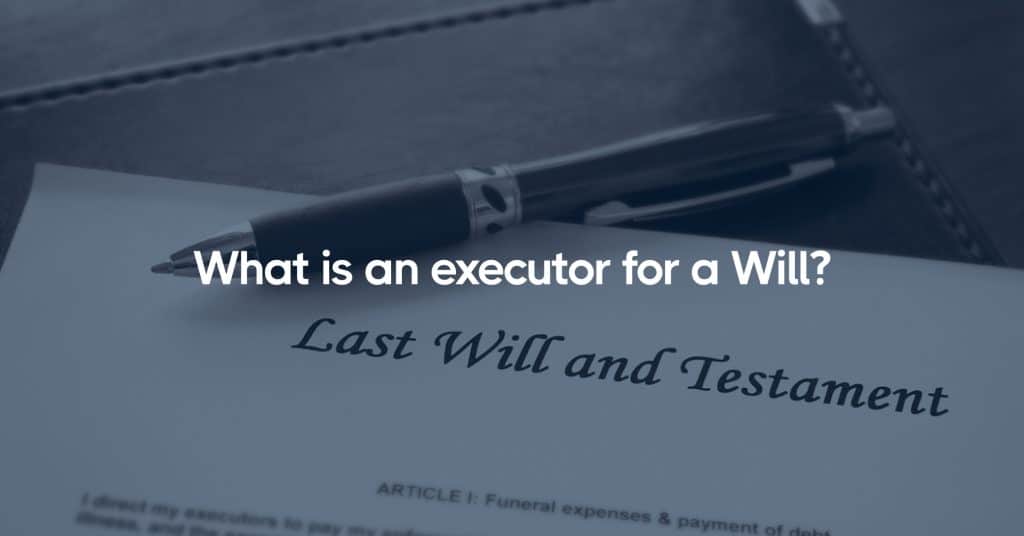The role of an executor (sometimes referred to as a “personal representative” in some states) is to oversee the probate of an estate, which involves identifying and inventorying the deceased’s property, paying debts and taxes, and distributing the remaining assets as the will directs. The specific requirements to serve as an executor vary from state to state, but here are some general qualifications and considerations commonly found across the U.S.:
- Age: Most states require the executor to be a legal adult, typically at least 18 years old.
- Mental Competency: The individual generally must be of sound mind, meaning they can understand the duties and responsibilities they’re undertaking as an executor.
- Criminal Record: Many states may disfavor or disqualify individuals with felony convictions from serving as executors due to potential trustworthiness concerns.
- Residency: Some states have residency requirements or additional stipulations for out-of-state executors. Non-resident executors might face additional requirements like posting a bond or designating an in-state agent.
- Bonding: Depending on the state and the specifics of the will, an executor might be required to post a bond, which is a type of insurance policy protecting the estate’s beneficiaries against potential losses due to executor misconduct.
- No Conflicts of Interest: While this isn’t always a formal requirement, courts may assess potential conflicts of interest. Someone with a conflict might not be suitable to serve.
- Court Discretion: The court has the final say on whether someone can serve as an executor. It can refuse appointment for various reasons, even if an individual meets other criteria.
- Willingness to Serve: Even if someone is named in a will as executor, they have the right to refuse the appointment. If they’re unwilling or feel unqualified to handle the responsibilities, they can decline.
- Additional Stipulations in the Will: Sometimes, wills may contain specific directives or conditions related to the executor’s role. Beneficiaries and the courts typically honor these unless they contravene state laws or raise significant concerns.
- Special Expertise or Qualifications: While not typically a legal requirement, in some situations, it might be beneficial for the executor to have specific knowledge or skills, especially for larger or more complicated estates.
- Good Moral Character: Though this is a somewhat subjective criterion, many states expect the executor to be of “good moral character.” This expectation ties into the trustworthiness and reliability necessary for the role.
Given the variance in state laws, if you’re considering naming an executor in your will, or if you’ve been asked to serve as one, it’s crucial to consult with an estate planning attorney in the relevant state to understand the specific requirements and implications.
What are common responsibilities of an Executor for a Will?
The executor of a Will has a broad range of responsibilities. These duties ensure that the deceased person’s final wishes are carried out and that the estate is properly managed and distributed. Here are the primary responsibilities of an executor:
- Probate Process Initiation: The executor must file the will with the probate court to begin the official process. This may involve proving the will is valid.
- Inventory of Assets: The executor is responsible for identifying, gathering, and safeguarding the deceased’s assets, which might include bank accounts, real estate, stocks, bonds, personal property, and other valuables.
- Property Management: Until the estate is settled, the executor may need to manage or maintain properties. This could involve paying mortgages, insurance, or taxes, or even deciding to sell real estate or other assets.
- Paying Debts and Taxes: Executors must notify creditors of the decedent’s death and settle outstanding debts using the estate’s assets. They’re also responsible for filing the deceased’s final income tax return and paying any taxes owed by the estate.
- Filing Necessary Paperwork: This might include final tax returns, forms related to the probate process, and other legal or financial documents associated with the estate.
- Distributing Assets: Once debts and taxes have been paid, the executor distributes the remaining assets according to the will’s instructions. If there’s no will, assets are distributed based on the state’s intestacy laws.
- Handling Challenges: If someone contests the will or there are disputes among beneficiaries, the executor may need to address these challenges, potentially with the help of an attorney.
- Maintaining Records: Executors must keep accurate records of all transactions related to the estate, including sales of assets, payment of debts, and distribution to beneficiaries.
- Closing the Estate: Once all other responsibilities are met, the executor will formally close the probate process through the court. This often involves providing a final accounting of the estate’s assets, debts, and distributions.
- Communication: The executor is the main point of contact for all parties interested in the estate, including beneficiaries, creditors, and the court. Keeping everyone informed and addressing concerns promptly is a key part of the role.
- Seeking Professional Assistance: Depending on the estate’s complexity, the executor might need to hire professionals, such as lawyers, accountants, or appraisers, to help manage specific tasks or provide advice.
Being an executor is a role that carries significant responsibility and requires attention to detail, organization, and often a significant time commitment. If someone feels unqualified or overwhelmed by the duties, they can seek professional assistance or, in some cases, choose to decline the role altogether.



